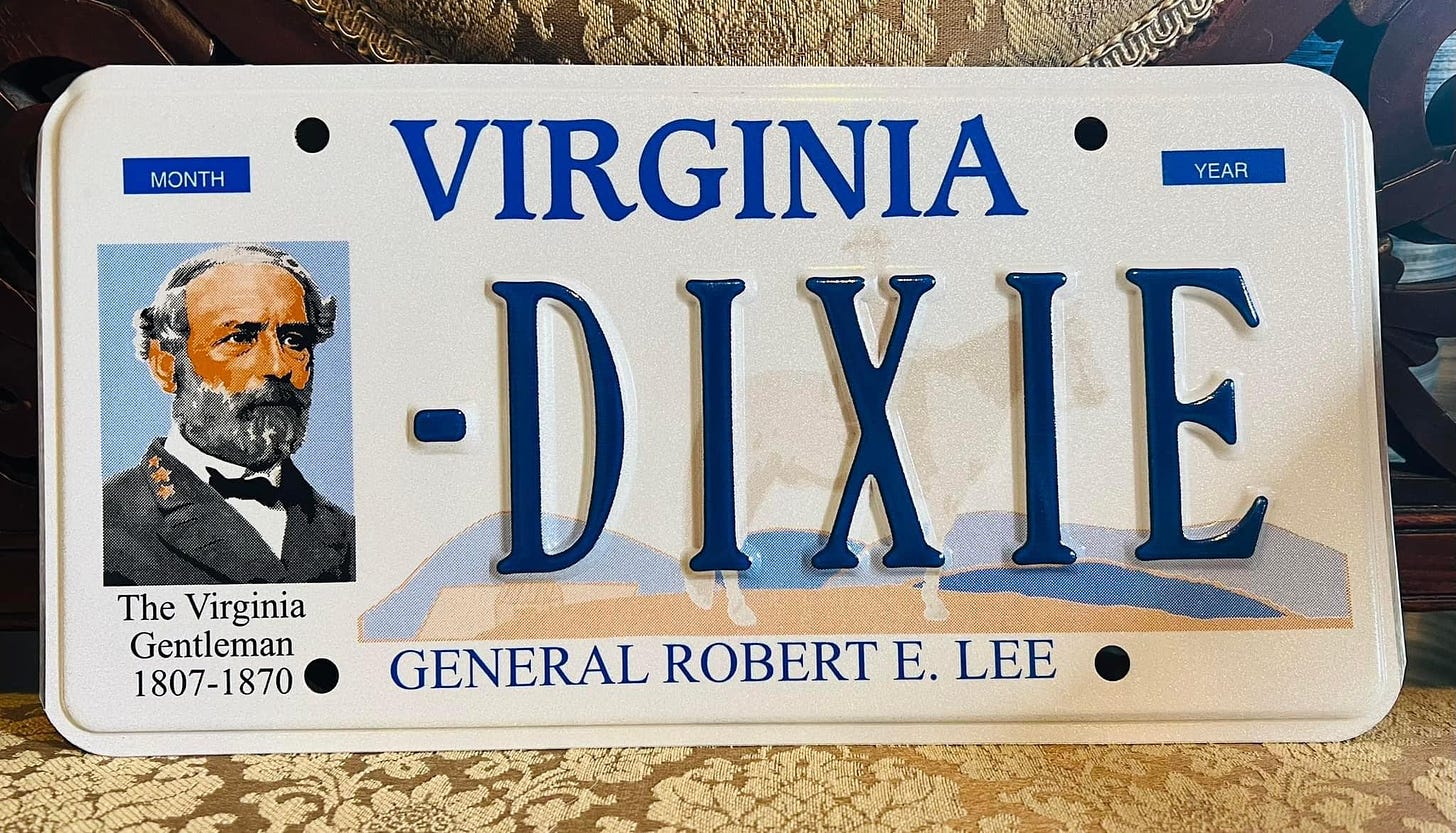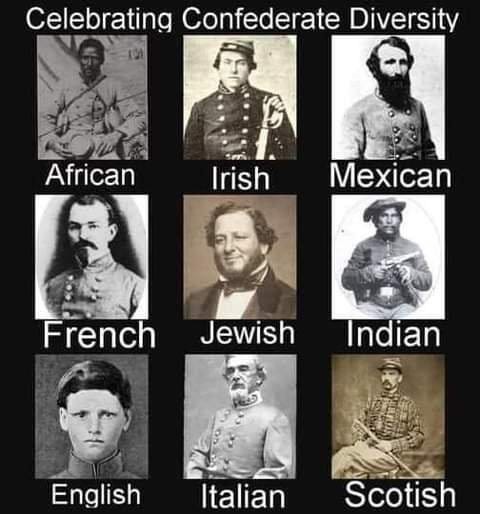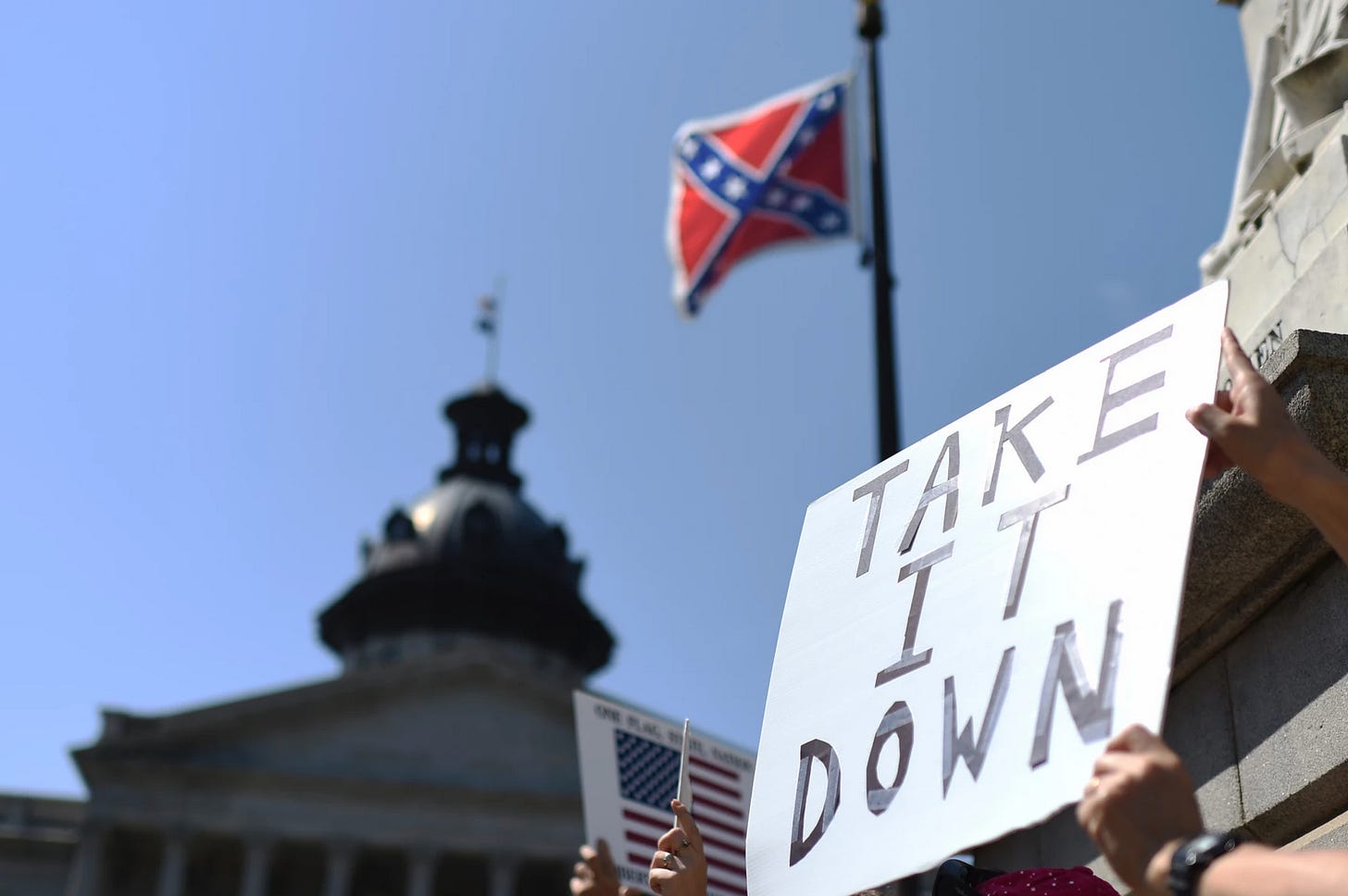April is Confederate History Month. It’s a bit of a misnomer since the individuals and organizations that take part in his month-long celebration are not interested in history, at leas as any normal person would understand the subject, but rather in a mythical narrative known as the Lost Cause.
It’s an opportunity to celebrate ancestors, colorful generals like Robert E. Lee and Stonewall Jackson, and a cause that largely avoids any reckoning with the reason the Confederate existed at all: slavery.
It’s also the month where Confederate heritage folks attempt to sell an ethnically diverse Confederacy, composed of every ethnic and national identity you can think of. The Confederacy, it turns out, was the first “woke” nation in modern history.
Governors in the states of Alabama, Mississippi, Tennessee, Florida, Louisiana, and Georgia will likely sign some type of proclamation recognizing Confederate History Month. Most, if not all of them, will do so without making a big stink about it. It’s something you do while hoping that the general public just looks the other way.
One place where the governor will not be signing a proclamation is in Virginia. You might find that strange since Richmond served as the capital of the Confederacy and many of the major battles were fought on Virginia soil.
Virginia hasn’t officially recognized Confederate History Month since 2010. That year, Republican Governor Bob McDonnell signed the proclamation as governors had done previously. He most likely gave it zero thought, but in 2010 Virginia was already commemorating the Civil War 150th, well before most other states did in 2011.
I attended some of the earliest meeting of the 150th commission as an adviser before moving to Boston in 2011 and what stood out to me at the time was Virginia’s commitment to telling the full story of the Civil War, including slavery. This was in sharp contrast with how the Civil War was commemorated during the centennial celebrations of the early 1960s.
Given this context, it should come as no surprise that the response to McDonnell’s Confederate History Month proclamation was immediate and highly critical since it made no mention of slavery. It offered little more than the tired Lost Cause drivel contained in most of these public statements.
McDonnell first retracted the proclamation and offered an apology:
The proclamation issued by this Office designating April as Confederate History Month contained a major omission. The failure to include any reference to slavery was a mistake, and for that I apologize to any fellow Virginian who has been offended or disappointed. The abomination of slavery divided our nation, deprived people of their God-given inalienable rights, and led to the Civil War. Slavery was an evil, vicious and inhumane practice which degraded human beings to property, and it has left a stain on the soul of this state and nation.
But imagine my surprise when shortly thereafter, McDonnell signed a new proclamation, the following year, designating April as Civil War History in Virginia Month.
The writing was on the wall for Virginia’s Confederate heritage community, including the Sons of Confederate Veterans, United Daughters of the Confederacy, and Virginia Flaggers, organized in 2011. They no longer enjoyed the same political influence as compared to years past.
That has only become clearer since then as the state becomes more politically and ethnically diverse—a process that can be seen most directly in recent state and national elections.
Which brings us back to April 2024.
This week Republican Governor Glenn Youngkin has to make a decision. Two bills are sitting on the governor’s desk.
HB 812: Repeals authorization for the issuance of Sons of Confederate Veterans and Robert E. Lee special license plates and provides that such special license plates already in circulation will remain valid until their expiration and shall not be renewed.
and
HB 568: Eliminates the exemption from state recordation taxes for the Virginia Division of the United Daughters of the Confederacy and eliminates the tax-exempt designation for real and personal property owned by the Virginia Division of the United Daughters of the Confederacy, the General Organization of the United Daughters of the Confederacy, the Confederate Memorial Literary Society, and the Stonewall Jackson Memorial, Incorporated.
As you might imagine, Confederate heritage groups are calling for the governor to veto both bills. As yet he has done nothing, but time is running out. If he does nothing, the bills become law on April 9—the very same day that Robert E. Lee surrendered to Ulysses S. Grant at Appomattox Court House.
I have no idea what the governor plans on doing. That he has done nothing as of this date is telling. Perhaps he will veto the bills last minute and hope that few people take notice. In the end it will come down to whether he believes this particular constituency of Virginians matters.
It didn’t to McDonnell back in 2010 and the Confederate heritage community is now more marginalized today than at any other point in recent history.
If I had to guess, I would say that the governor will do nothing and allow the bills to become law. We shall see.
What do you think?








I certainly hope that Youngkin has the stones to allow both into law. The more pushback those organizations and the Lost Cause ideology get the more likely they will ultimately go away.
I can only imagine how angry the UDC would be if the Governor's office refused to veto this. I sincerely hope that the UDC gets what is coming to it after all this time of obfuscation and distortion.